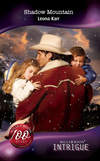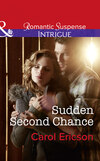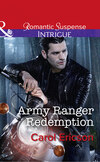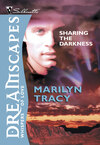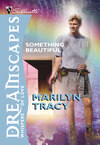Kitabı oku: «A Warrior's Vow», sayfa 2
Chapter 2
In the fading light, Leeza watched Daggert touching Lulubelle, and knew a pang of something akin to envy. The man ran his hands over the horse as a lover might, firmly, with sure intent and deliberate strokes. He knew just where to touch the beast to gentle her, to soothe her, to make her understand his wishes. He applied light pressure to her knee joints and, one by one, she lifted her legs for him. He stroked her neck, whispering to her, and she swayed into his embrace. His hand traveled every part of her and she trembled beneath his touch.
By the time Daggert turned around, Leeza’s mouth had gone dry once more, but this time exhaustion had nothing whatsoever to do with it. Her face, usually schooled to reveal nothing, must have showed her every thought because he checked his stride, and his golden eyes seemed to sharpen.
At that moment, she couldn’t have spoken if her life depended on it. He looked every inch the warrior she’d imagined him when she’d stepped out on the veranda earlier that day and coolly announced she was accompanying him on the search for Enrique Dominguez.
But there was more than the warrior in his eyes now. His frozen stance reminded her of something feral, wild. A black wolf, perhaps—wary, dangerous and dominant. The sudden heat in his gaze only underscored the impression. Then he moved again, his stride fluid and muscled, deliberately turning his gaze away from her.
She wondered if she’d imagined what had just happened, then questioned if he’d provided the show with the horse just to drive her crazy. She shook her head. He couldn’t have. He would have to have eyes in the back of his head to know she’d sat there slack-jawed, imagining the touch of his hand on her body instead of the horse’s.
She’d simply been affected by the day’s intense heat.
The difficult ride.
The worry over Enrique.
And the fact that she was wholly out of her element.
Her reaction was nothing more than these things. Absolutely nothing.
But none of those reasons explained away the fire his gaze had lit inside her.
To her relief, Daggert’s dog, Sancho, came running up then, his long, black-spotted tongue lolling. He spat out a branch of some kind at his master’s feet and barked twice before sitting down and panting heavily.
Leeza blushed when Daggert pulled a plastic bowl and cup from one of his packs and poured a little canteen water into each. She’d drunk directly from the canteen. He set the bowl down for the dog and quickly quenched his own thirst. When Sancho barked, he shook his head and picked up the bowl.
“Fire first, dinner later,” he told the dog gently.
He carefully replaced the items in his packs before beginning to gather large river rocks from the arroyo’s sandy banks. The dog settled down in the sand beside the saddles, lay his head on Daggert’s tooled leather seat and gave a great sigh. Like his master, the dog didn’t glance her way.
Leeza looked up to find Daggert standing less than six inches away from her. She hadn’t heard him move. He held out his hand.
She looked at his callused palm as if it might hold snakes. He waited. She placed her stiff fingers in his and was startled by the contact. He might as well have kissed her, so intimate was the sensation of their fingers touching. She could feel the heat of his skin, the roughness of his calluses and some indefinable psychic energy emanating from him.
And when his fingers wrapped around hers and he effortlessly pulled her to her feet, inches from his rock-hard body, she felt the impact arrow through her. She tried removing her hand, but he didn’t release her. She gave him a startled glance and found he was staring at her with a fixed, almost hard look. A wolf’s look.
A flutter of fear and unbridled need made her breath catch.
And still he held her hand, not squeezing it, but not letting her go, either.
“That’s hilarious,” she drawled, but she felt something inside her quaking, both with that strange fear and something else she’d never experienced before.
He said nothing, though he continued to look at her as if forcing her to read his thoughts, understand the meaning of his touch. Abruptly, he let her go.
Her hand hung in the air for a moment, as if he’d hypnotized her and no power on earth would let her lower her limb. Then she jerked it down to her side. It seemed to tingle, but she resisted the urge to look at it. Or at him.
Daggert stacked the river rocks in a circle for the night’s campfire. Even as he performed the methodical task, he felt the woman’s presence. When he’d turned from her horse to see her watching him, with a fire flickering in her gaze and her lips parted and her fingertips resting against her pulsing throat, he’d felt a fuse light inside him. Who’d have thought such a cool customer would have such a look in her eyes?
Could it be she didn’t even know it? Her mouth had snapped shut and her eyes had widened as if she saw something in his face. Maybe she’d spent so many years playing the ice princess that she’d convinced herself she was just that.
He’d told her he wasn’t dead, but until he’d held her in his arms, even if just to keep her from falling down, he might as well have been six feet under. When little Donny died, something in him had been murdered, too. The crippling guilt and scarcely checked rage had turned him away from everyone, everything he knew.
He should have made sure Donny hadn’t walked home alone from his friend’s house. He should have found the boy in minutes. He should have tracked the fiend who’d taken his only son. He should have found the monster and eviscerated him.
Sometimes Daggert wondered if he’d have been okay if his ex-wife had blamed him, too. But she hadn’t. She’d nearly drowned in her grief, but she hadn’t blamed her tracker husband, hadn’t ever said a word to imply she harbored anything but sympathy for his torment. But even with her acceptance, Alma hadn’t been able to get past the terrible pain rioting just below the surface of James Daggert. He’d understood when she gave up one day and left him in the canyons of his own despair. She deserved a life, deserved to find some measure of happiness. He sure as hell couldn’t give it to her anymore.
He thought of the woman who had ridden behind him all day, and of her determination to find Enrique. The fleeting thought that she might not give up on him flashed through Daggert’s mind. He shook his head. That was crazy thinking.
Still, he found some grim satisfaction in knowing he wasn’t dead to sensation, that his body, if no other part of him, could still be swamped with restless need, however painful. He smiled wryly, suspecting he’d be hurting plenty by the conclusion of this particular mission.
He thought about her sad little litany of surface facts about Enrique Dominguez, the way she’d repeated them like a talisman against her exhaustion. He’d done the same with Donny. Not reciting all the little things he knew about the boy—those were carved in his heart—but details about his death.
The fact that no one had seen anyone unusual that day was significant all by itself. A little boy on his way home from a friend’s house didn’t wind up some forty miles away, mangled beyond recognition. Daggert knew that people had seen someone, all right—someone they knew. But because they knew him, they’d forgotten they’d seen him. Because he belonged there. Like fences, like flowerbeds, like grass.
Someone Donny knew. Someone Daggert knew.
Everyone became suspect. Everyone became potential child killers. And his litany became, “Who is it? Who do I know who’s capable of murder? Who did everyone see that day and not even notice? The butcher, the baker, the candlestick maker?”
He understood the need to focus. He understood litanies. They drove fear away and kept despair at bay.
After he laid the fire and lit it, he pulled out his collapsible water buckets, filled them and set them down in front of the horses. He doled two scoops each of molasses oats into canvas feed bags, and after the horses had drunk their fill, slipped a makeshift chuck-wagon on to each horse’s head.
He hoped he and the woman would find the boy the next day, not just for the child’s sake. He hadn’t planned on feeding two horses, and had brought enough oats for one, for only five days. At this rate, they would last only three full days without supplemental supplies, and it took nearly that long to reach the upper mountains.
The only sounds that could be heard were the distant cry of a nighthawk, horses munching oats and the fire crackling in the chilly desert night. Into that companionable quiet, he heard Leeza ask, “What do you want me to do?”
“Sit,” he said, pulling two dinner packets from one of his saddlebags. “Watch out for goat heads.”
“What?”
“Stickers. Shaped like goat heads.”
“Oh. Thanks.”
Daggert set a pot of water on the broad, flat rocks he’d placed in the middle of their fire circle. At some three thousand feet on the high desert plain, water wouldn’t take long to boil.
He added the already cooked meals in their little plastic bags to the churning water. When they were heated through, he plucked them from the pot with his pocketknife and, slicing them open, dumped the contents on to the aluminum plates he’d set out earlier.
As he worked, Leeza didn’t say a single word, not even muttering snide comments when she thought he couldn’t hear her, as she had much of the day. He turned to look at her and found her staring at the flames, silent tears coursing down her beautiful face.
He briefly closed his eyes. Even if he were the most talkative man in the world, he wouldn’t have known what to say now. He said nothing, pretending he hadn’t seen her anguish, and dug in one of the packs again, withdrawing a container of salt and pepper and a couple of napkins.
The race for space travel had vastly improved simple pleasures on earth. Even the sorriest excuse for a cook could rustle up a decent meal with freeze-dried ingredients or precooked entrées, a pot of hot water and a few spices carefully packed in a plastic bag. Within minutes, he set a plate of beef stew out for Sancho and two more of pasta primavera for Leeza and himself.
With a wary glance at her, he held out her plate. Most signs of tears were gone, but she didn’t respond.
“You’ll feel better if you eat something,” he said.
She reached for the plate then, and he let out a pent-up breath as he handed her a fork. She stirred the pasta around but didn’t make any move to eat. “Enrique’s only nine,” she said.
He waited. Donny had been seven. He would be seven forever. “He’s growing up, Alma. Let him walk home alone.”
“And he’s afraid of thunder.”
Daggert forked in a mouthful of pasta and chewed silently. “Daddy? You won’t let the lightning hurt me, right?”
“He plays practical jokes.” She gave a watery chuckle. “He put a paper sack filled with dry leaves in the back of a dresser drawer so I’d think there was a rattlesnake in it when I opened the drawer. It worked.”
She was silent as Daggert took several bites, then said, “Everyone thinks Enrique dislikes me.”
Daggert stirred the fire, and the coals in his memory. “You’re too hard on him, James. He’s just a little boy.”
“Do you want to know why?”
He set his knife aside.
“They—everyone from my best friends to the housekeeper—thought I was too hard on the children. All the children. But mostly Enrique.”
“Why?”
“Do you mean why does everyone think I’m too hard, why was I too hard or why Enrique in particular?” she asked.
“You choose,” Daggert answered, amazed at her ability to split meanings.
“You sound like a psychiatrist.”
He didn’t say anything, thinking she couldn’t know how ironic that sounded, due to the fact that a host of psychiatrists hadn’t been able to put him together again. All the king’s horses and all the king’s men… One of Donny’s favorite nursery rhymes.
“Okay, I don’t believe anything can be accomplished without hard work. And it’s my experience that children need strict rules and guidelines. It’s how I was raised, and I’m fully aware of the benefits of such a firm hand at the helm. And why Enrique in particular? Because he’s smart, because he’s lazy. Because he’s vulnerable, and vulnerability only makes victims.”
“Being vulnerable is a liability, then?”
“I’m tired,” she said suddenly, and handed him the plate of uneaten food. “I think I’ll pass on the rest of this session.”
He handed her plate back. “It was a hard ride and a long day. You’d better eat something.”
“Really, I couldn’t.”
“But you will.”
She gave him a cold look that let him understand he’d have to wrestle her down and force-feed her before she’d concede.
He sighed. “Lady, I won’t have time tomorrow to take you back to the ranch when you faint from hunger. You don’t have enough meat on your bones to go a day without food. It’s a matter of simple mathematics. The boy already has a twelve-hour head start on us. Add another eight or nine hours and the kid’s been out in the open for almost twenty-four hours already. We have to catch up with him soon, and we won’t be able to if I’m busy picking you up off the ground.”
Though Leeza watched him warily, Daggert didn’t look at her as he bent over his own plate and resumed his careful eating. She dipped up a forkful of the pasta and tasted it. She was surprised at how delicious it was. If Daggert dared smile, she’d give the plate of pasta to his dog rather than continue to eat it herself, but he didn’t. He merely finished his dinner in a silence that almost felt easy.
And she was hungrier than she’d thought, for within seconds, her plate was empty, too.
“Thank you,” she said finally, relinquishing it into his hands. “You were right, I was hungry.”
He nodded and moved away from the fire, but not before Leeza had caught a sober look of something that might have been sympathy in his gaze. Sympathy or an almost reluctant compassion. For some odd reason, the notion of his possessing any compassion unnerved her. It was far easier to think of him as rude and bullying and harder than nails than to see him as a human being with human emotions.
After she’d warily used the meager facilities he’d set up behind a low scrub oak, and availed herself of some of the remaining hot water, she turned her back on him and carefully, stiffly, removed her coat, blouse and boots.
Never one for voyeurism, Daggert tried turning his gaze to the fire, but failed miserably when he heard the rasp of her jeans zipper. Her legs went on forever.
“Goddamn,” he said.
She stiffened but didn’t turn around. “What?”
“I burned myself,” he lied. Or was he telling the abject truth?
Amazing him, she pulled on a pair of red satin pajamas. She might as well have been at some fancy motel instead of camping out in the desert on a mission to find a runaway kid. What had possessed her housekeeper to pack such a ridiculous item?
“Good night,” she said, slipping into her sleeping bag.
“Right,” he said, feeling as if he’d fallen down Alice’s rabbit hole.
“Sleep well,” she murmured.
Thinking about her in that getup, he’d be lucky if he ever slept again.
Chapter 3
From atop the highest peak in the rising foothills, the hunter, as he thought of himself, was able to see for miles in all directions. With powerful binoculars at his eyes, he could easily discern Leeza Nelson in red pajamas that made her look as if she’d dressed herself in flame. He saw Daggert moving around the fire, banking it, careful as ever.
The tracker hadn’t been so careful four years ago, had he?
Turning his binoculars to the north, he spied the would-be fire of his newest prey. Everything in him itched to move forward, to catch the boy and teach him a lesson about crossing boundaries. He’d taught many before.
But he shifted his gaze back to the woman slipping into her sleeping bag. The hunter wondered if Leeza Nelson knew that people called Daggert the Cassandra of the desert, always crying murder and never finding enough evidence to prove it. He wondered if she’d heard that Daggert was the man everyone trusted and no one believed.
The woman should have given up by now, but she’d stayed with Daggert throughout the day, even if she posted in her saddle, English style.
She didn’t know about boundaries, either. Maybe it was time she was taught a lesson.
The man wondered if he should flip a coin. The woman or the boy? Heads the woman, tails the child. If he played his cards right—and he was one hell of a card player—he might have the opportunity to teach both of them.
He didn’t need a fire. His thoughts of what he would do to them warmed him thoroughly.
Leeza was wholly spent, tired in places she’d never been aware of before, yet sleep eluded her.
The night stars seemed heavy, as if straining against invisible reins to streak to the earth. She could pick out the Big and Little Dippers, Cassiopeia and the Seven Sisters. In another month she’d be able to find Orion’s belt, she knew a portend of the coming winter.
She’d shown Enrique the constellations one night about two weeks earlier. He’d studied them carefully, trying to see patterns in the myriad twinkling lights until he finally learned the few she could always find.
“My parents are up there,” he’d said.
Assuming he’d meant “in heaven,” Leeza had had to clench her hands in her lap to keep from wrapping her arms around the little boy who’d lost both parents at such an early age.
Just as she had.
But no one had coddled her. Not in any of the foster homes she’d been shuffled in and out of in her early years. Not in the tidy home John and Cora Nelson had brought her to when she was nine. Enrique’s age exactly.
“Emotionalism is a waste of time,” her adoptive father had said on more than one occasion, usually when her eyes were brimming with tears over some imagined hurt. “It reveals a lack of precise thinking.”
Looking at the stars now, out in the middle of a vast desert wilderness, inches from a hard stranger who was kind to his animals if not to the woman who’d hired him, Leeza found herself wishing that she’d drawn Enrique onto her lap and held him close. If she had given just that small measure of comfort, would he have opted to stay at the ranch and not run away into the darkness?
Her partners, Corrie and Jeannie, fellow orphans and sisters in heart if not blood, had entered the Rancho Milagro venture with their arms wide open for the children arriving at the foster-care facility. Leeza had agreed to become a partner in the project for two reasons: Jeannie had needed something to do after her husband and baby had been killed in a senseless accident, and because Leeza herself truly believed in the value of a firm guiding hand for children who were lost, for whatever reason.
She just hadn’t expected it to be so hard. She had assumed they would hire a few teachers, set the children on the straight and narrow, and guide them to understand how they all had an opportunity to make something of their lives. Much as John and Cora Nelson had done with her.
Instead, Jeannie had expected them to actually live on the premises, to give up their lives in Washington, D.C. and move to the remote location north of Carlsbad, New Mexico. Jeannie had come first, overseeing the renovation of the ramshackle place. Corrie came next, to find a new life for herself and the children she loved.
Finally, reluctantly, Leeza had arrived. She’d given the ranch a halfhearted try, but in truth, she was eager to get back to her business deals and mergers. The venture at the ranch seemed chaotic to her, out of control, and not just because the state and federal regulations kept them hamstrung. It was the children who created the biggest problem for Leeza.
Children scarcely out of diapers, angry teenagers and kids like sad-eyed little Enrique had been deposited at Rancho Milagro, the last stop in a string of broken homes and hearts. Each one seemed to weigh on Leeza’s soul, though she’d never admitted it before now. And little Enrique with his questing mind, that oddly shaped scar on his forehead—a permanent reminder that man’s inhumanity to children persisted no matter how many laws were changed—his quirky sense of humor and those too-old eyes, had gotten under her skin more than the others.
Was that the reason she’d ridden him harder, pushed him with greater determination? So much so that she’d driven him away from the ranch of miracles?
Exhaustion and fear had brought unfamiliar tears earlier that night. Luckily, the rock-hard Daggert hadn’t seen them, or if he had, he’d pretended otherwise. Now her worry over the little runaway had driven her grief deep inside again, to a lonely place of roiling emotions, with no relief or release.
She would find him. She had to. That’s all there was to it.
She reviewed the situation with a cold dispassion. Mentally evaluating any given situation was an exercise she’d learned early in childhood, and had been drilled into her by her adoptive parents. Mental precision kept fear at bay.
Bracingly, she told herself that a day’s absence was not so long on a very big ranch. And Enrique had a coat, a blanket and a horse named Dandelion.
And though he couldn’t know it, he had her, a really smart dog and a master tracker named James Daggert going after him.
“Damn it, lady, go to sleep.” Daggert’s voice was strangely soft. “You’re doing the best you can.”
She closed her eyes against the weight of the stars, her fears for Enrique and the closeness of the man lying not two feet from her. Her last conscious thought was to wonder how Daggert had known she was awake. And how he’d known to say the one thing that would allow her to relax enough to sleep.
She woke what seemed seconds later to the sound of something creeping around the camp. Even as fear made her breath catch in her throat, hope that it might be Enrique flooded through her. But on the very real chance it was a bear, she opened her eyes the merest bit.
At first she couldn’t see anything in the darkness, then she made out James Daggert’s silhouette against a wall of dimming stars. She thought he might be praying, he stood so still, facing the thinnest slice of predawn light on the horizon. He drew a deep breath and expelled it slowly. His exhalation hung in the air, and for some reason, it was a lonely sight—man, stars and cloud of warm breath against a black sky.
The chill of the September morning nipped at her cheeks, and she huddled in her sleeping bag, realizing she’d actually slept all night. As the sky lightened, she watched Daggert move about the camp.
He packed his things neatly and with considerable skill. He studied the camp with the eyes of a drill sergeant inspecting a parade troop. She’d seen his attention to detail the day before, but watching him when he was unaware of her gave her the opportunity to see that nothing about his movements was wasted. He was, in his way, an efficiency expert.
She wondered if the precision was a matter of survival. It certainly was in her world. Lack of attention to every nuance of a venture was the ruination of a venture capitalist, and she was one of the very best.
Leeza suspected Daggert left nothing to chance because lack of forethought on his part might mean certain death for him or the person he sought.
His horse nickered at him and he whispered for Stone to be quiet.
Leeza, buried in her warm sleeping bag, smiled beneath the covers.
She’d never taken the time to watch a man prepare for his day. Any encounters she’d had in the past had ended with a yawn, a polite good-night and the firm shutting of her door as her companion departed. Waking up with a man seemed too great an intimacy, too close to an emotional entanglement.
Not that she was technically waking up with James Daggert. She stopped smiling.
The horse nickered again and Daggert moved toward him, running his broad palm over the large, rangy sorrel. He murmured something and the animal rumbled in appreciation.
“Soon, old man,” Daggert said softly.
Leeza could hear true affection in his voice, as if he and the horse had been through many rough times together and the dangers they’d faced had forged an unbreakable bond between them. Watching them, she tried imagining feeling the powerful muscles rippling beneath her palm. Instead, her mind substituted Daggert’s bare shoulders. She closed her eyes.
“Good morning, Belle, you beauty, you.”
Her eyes flew open. And she blushed, realizing that velvet voice hadn’t been addressing her, but rather her horse.
The renamed Belle pawed the ground, as if answering him.
Leeza sighed as Daggert hefted the thick saddle pad, then the hated saddle, onto Belle’s back and cinched it securely. He packed her saddle as carefully as he had his own. When all was aboard the horse, with the exception of Leeza and her sleeping bag, he gave Belle a slice of apple.
The setter, apparently knowing Daggert’s ritual, came up, wagging his tail and whining at his master.
Daggert ran his hand down the dog’s soft neck. Leeza thought she’d never seen a man so completely comfortable around animals. It was as if he shared a telepathic communication with them.
“No use hurrying, Sancho. We have a half hour before full daylight, and if I know women—and contrary to your experience of me, I’ve known a few in my time—the lady won’t be ready, anyway.”
Leeza could have sworn the dog grinned as his feathered tail swept the earth. James ran his hands down the full length of the dog’s back, and Leeza wriggled even as the animal did.
Sancho barked.
Leeza groaned.
“She’s awake,” Daggert said. “Close your eyes now or her red pajamas will blind you.”
Daggert firmly believed that a good ninety-nine percent of the human population looked a bit worse for wear after a night out in the open. Not Leeza Nelson.
She looked as if she’d just stepped from a penthouse apartment, freshly showered, powdered and having had a manicure following a massage. Instead, she’d come around a scraggly mesquite bush and used towelettes for a bath. The only telltale sign that she’d been horseback riding most of the day before was her slightly stiff walk as she approached the campfire.
He pointed to the coffeepot, then poured some for her before she reached for it without a pot holder. She gave him a dazzling smile that made him wish he’d packed a Kevlar vest.
Not trusting her friendliness—she hadn’t struck him as a hail-fellow-well-met sort of person—he busied himself unrolling a chamois cloth and spreading out the items Sancho had collected the day before. He sat studying them.
“What’s all this?” Leeza asked brightly.
“Clues,” he said.
“Explain, please,” she said. Not a question, but a command, even if she had softened it. That do-it-my-way attitude again.
“Sancho brought them in last night.” He held up the branch of scrub oak the dog had carried in his jaws. He pointed to the thistles that had been embedded in his silky coat. “Russian thistle and tumble-weed. Broken, but still fresh, see? And these? Bits of chamisa. Another gum wrapper.”
“His path,” she said, a note of wonder in her voice. “That’s the path Sancho took—following Enrique?”
Daggert couldn’t help but look at her. Her logic wasn’t what snared him; it was the honest note of awe in her voice. Luckily, she wasn’t gazing back at him. She was beaming at his Sancho.
“You’re a good dog,” she said. “A very, very good dog.”
Sancho rose and came to her, tail beating against Daggert’s back.
Daggert was stunned. He’d never seen Sancho approach anyone other than himself. The mutt always seemed to maintain a purely business relationship on their mission, eschewing fraternization with the clients, just like his master.
Daggert found he preferred things that way. He pushed Sancho’s tail aside, but instead of moving away, the dog merely gave Daggert a happy grin and sat down beside the woman.
She looped an arm around his back, scratched at his ears and asked the dog, “So you know which way we’ll be going then?”
Daggert felt unreasonably irritated with Sancho’s defection, and the fact that she was talking to the dog instead of him.
“Thanks for saddling Lulubelle.”
“Call her Belle. That other name is stupid for a horse.”
“Noted,” she said. “And I guess we won’t talk about the fact that Enrique’s riding Dandelion.”
James tossed his cold coffee on the fire. “You’d better eat,” he said, handing her a plate of eggs and grilled toast he’d kept warm for her.
“Please. I’m barely to the coffee stage.”
“Give it to the dog, then,” he said.
“You want some of these eggs, boy?”
He did. She scraped the contents of her plate on to a flat rock.
“His name is Sancho.”
Sancho inhaled the food she’d set out for him, and wagged his tail at her.
“Apt,” she said. “Every Don Quixote needs a Sancho, right, boy?”
Daggert didn’t know which he disliked more, the ice queen with her barbed tongue or this falsely smiling tourist. And the damnable truth was he wanted to kiss her either way.
“I think we’re going to have to set a couple of ground rules,” she said, making his hackles rise. “I realize that I know nothing about tracking and that’s why you’re here. At the same time, you know nothing about Enrique, and that’s why I’m here. I see no reason we can’t work together harmoniously.”
Daggert stood up. He’d known the pretty smiles and the butter-wouldn’t-melt-in-her-mouth routine was a sham, but darned if he hadn’t fallen for it, anyway.
He quickly rubbed their plates with sand, wiped them with paper napkins, which he tossed into the dying flames, and stowed them in one of his saddlebags. He poured the remaining coffee on the fire and folded the pot in a heat-resistant cloth, shoving it in with the plates.

